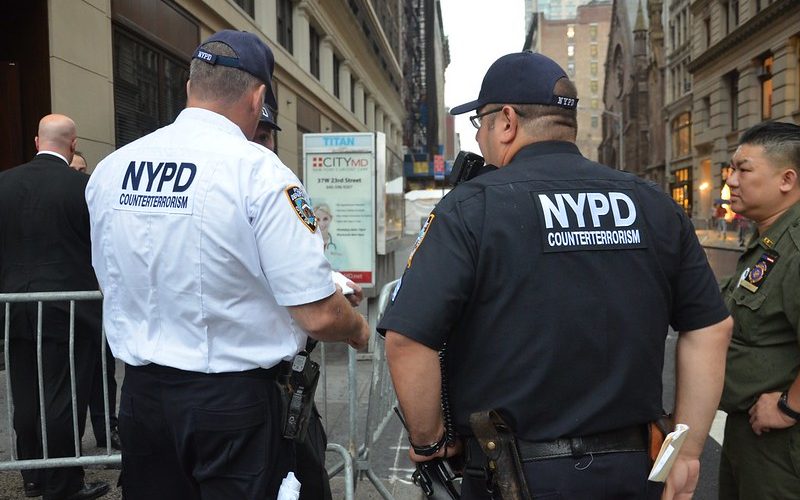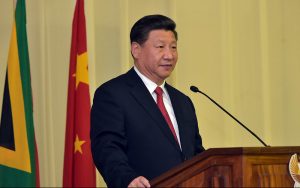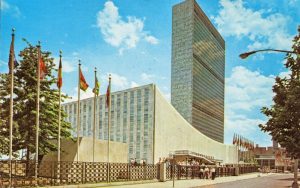In the 21st century, one of the most prominent national and international security and defense problems has been terrorism. While terrorism is a centuries-old issue, it has gained prominence since the massive improvement of technology from the mid-20th century onward and has become a force used by state and non-state actors and poses significant problems for democratic and authoritative regimes alike. In many ways, terrorism and its ability to be conducted anywhere, at any time, has been aided seriously by globalization. While terrorism cannot be laid at the feet of globalization, the process has undeniably assisted in the growth of terrorism and the ability in which people can become radicalized.
The Globalization of World Politics (Baylis et al., 2010) defines globalization as “a historical process involving a fundamental shift or transformation in the spatial scale of human social organization that links distant communities and expands the reach of power relations across regions and continents”. Associate Professor of History David Atkinson of Purdue University expands upon this stating, “it [globalization] represents a global process of increasing economic, cultural, and political interdependence and integration, with deep historical roots”; he further explains that this can be fostered by international trade, communication, and technology.
Terrorism has long been a difficult term to define, however, Bruce Hoffman does a fantastic job of defining it in his seminal text Inside Terrorism, stating that terrorism is, “the deliberate creation and exploitation of fear through violence or the threat of violence in the pursuit of political change”. Terrorism, using the meaning provided, has been utilized throughout time by many varying groups, notable instances being the Gunpowder Plot in 1605, the assassination of Alexander II in 1881, and the King David Hotel bombing Jerusalem in 1946. The advent of technology and the means for faster communication since the Second World War has enabled terrorist organizations to more quickly communicate with one another and share ideas for plots, methods to avoid law enforcement and military units, and recipes for bomb and weaponry design. The expansion of both the internet and social media has also assisted in radicalizing persons on message boards, gaining further funding for operations, spreading the group’s overall message, and putting out propaganda meant to frighten or psychologically intimidate. The developing social views within countries also can further terrorist activities. Because social views may be leaning towards the left or right on the political spectrum, they can foster many new and potentially dangerous ideas that have the ability to advocate for or call for violence. Within the past hundred years as well, the global literacy rate and the ability to read a variety of different books have vastly improved, allowing for ideas and new theories on political science, current events, and religion to be spread even more.
In the United States, and taking hold in various other countries (Brazil, Canada, the UK), the right-wing, white nationalist/supremacist movement is gaining extreme footholds in various sectors of public, private, and political life. First, the term white nationalist is a large term, one encompassing many different groups with various political objectives and individual histories, these being the Ku Klux Klan, Neo-Nazi groups, and Christian Identity movements. Basically, what all of these groups have in common is the idea that white people are superior to other races and the ability to use violence to attain their goals. There are many other similarities and various differences, but there are too many and listing them here is beyond the scope of this analysis.
The white supremacist movement has seen an increase in radicalization via the internet. In 1995, Don Black (a noted white supremacist) created the website Stormfront, a site designed to allow white supremacists to discuss politics, race, and conspiracies involving Israel and Jews in a message board format, which can further the radicalization aspect. As the Southern Poverty Law Center (SPLC) notes, “Members can post opinions, listen to others respond, then post more feedback for all to read. The potential for dialogues to develop was built in — and, therefore, so was the potential to develop a genuine white supremacist cyber-community”. This type of mindset and radicalization has aided in the deaths of roughly 100 people by registered users. Sites like this allow supremacists, in my own estimation, to (1) plan violence, (2) communicate with like-minded individuals and share ideas on race and gender and politics, (3) share recipes for weapons or bombs, and (4) possibly use the site as a way to secure funding from anonymous donors for operations.
In terms of changing social views, Kathleen Belew, an Assistant Professor of History from the University of Chicago and noted historian of white nationalism, has an interesting theory about the rise of the white nationalist/supremacist movement, linking the radicalization to the social and governmental frustrations found in Vietnam. She makes the claims that the Vietnam War (the betrayal of veterans by both the public and the U.S. government) assisted in the creation of the white nationalist (or white power) movement, noting, “Loss in Vietnam and the Watergate scandal undermined their confidence in elected officials and besmirched the presidency itself. As legislation dramatically increased immigration, many worried that the arrival of immigrants would change the very meaning of American identity. They saw the rights movement of the 1960’s redefine race and gender relations at home and at work. They noted with alarm the government’s failure to help those who lost their farms to the banks or their factories to faraway places. As the mainstream right and left took up these concerns in a variety of ways, so did this troubled social and political context incubate white power activism” (Belew, 2018)
The rising political turmoil involving immigration, loss in war, the war itself and distrust of the government all aided in building up the white supremacist movement. It is also my own opinion that the rise of domestic terrorism by far-left, terror groups like the May Day Tribe, the Weathermen, and the Black Liberation Army also encouraged some with more far-right ideas to engage in terrorist activities as a response. The evolving social issues and problems within the world in the 1970’s undoubtedly played a role in creating the white supremacist movement.
The emergence of printing as an effective method of information came about in 1455 with Gutenberg’s printing press. However, it took significantly longer for the average person (not a member of a Royal House or high religious body) to be able to read on a consistent basis. With the start of the 20th century, the proliferation of books allowed many to be able to read many new books, those published by a large publishing house and self-published. One of the most important texts in the white nationalist movement (second only to the Holy Bible) is William Pierce’s (writing as Anthony Macdonald) The Turner Diaries, a fictitious novel set in a dystopian future in which the United States is run by Jews and African-Americans and the minority white race resorts to violence to secure their goals. An unabashedly racist novel that is incredibly violent and disgusting, this book still is seen by many white nationalists as being accurate of the current times and has inspired many real-life crimes, including the bombing of the Alfred P. Murrah Building in 1995 (the book contains virtual instructions of how to build an ammonium nitrate-fuel oil bomb) (Michel; Herbeck, 2001). Along with other survivalist or anti-government literature sold at gun shows, most often self-published or published by small right-wing groups/think tanks, the ability for white supremacists and nationalists to get their own message and ideas into the general populace has expanded greatly and immensely, to a terrifying degree.
While globalization has made terrorism more easily to spread and radicalize, there are often unforeseen consequences of progress. With every new idea theorized or put into writing, there will be a series of negative consequence that has the capability to be used to devious means. However, one must look at the overall picture and the good that these ideas bring: global literacy has improved greatly due to the advent of books, communications with people across oceans and vast distances have allowed for faster business dealings and the ability to communicate in diplomatic crises or share information of abuses, the theorizing of political ideas and new ways of speaking truth to power has allowed for non-violent protests and the ability for the public to have a voice in national decision/policymaking, and the internet has allowed for people to learn at a faster rate and become attuned to many more ideas than ever before. Terrorism’s growth and ability to improve is an unfortunate side effect of the progress humanity has made in communication and technology.
Sources Balyis, J. et al. (2010): The Globalization of World Politics: An Introduction to International Relations 5th Edition, Exford University Press. Belew, k. (2018): Bring the War Home. The White Power Movement and Paramilitary America, Harvard University Press. Hoffman, B. (2006): Inside Terrorism (Columbia Studies in Terrorism and Irregular Warfare), Columbia University Press. Michel, L.; Herbeck, D. (2001): American Terrorist: Timothy McVeigh and the Oklahoma City Bombing, Harper Collins. Oxford Bibliographies: Globalization, https://www.oxfordbibliographies.com/view/document/obo-9780199743292/obo-9780199743292-0009.xml Southern Poverty Law Center (SPLC): STORMFRONT, https://www.splcenter.org/fighting-hate/extremist-files/group/stormfront








Good discussion of issues that unfortunately strengthen terrorism